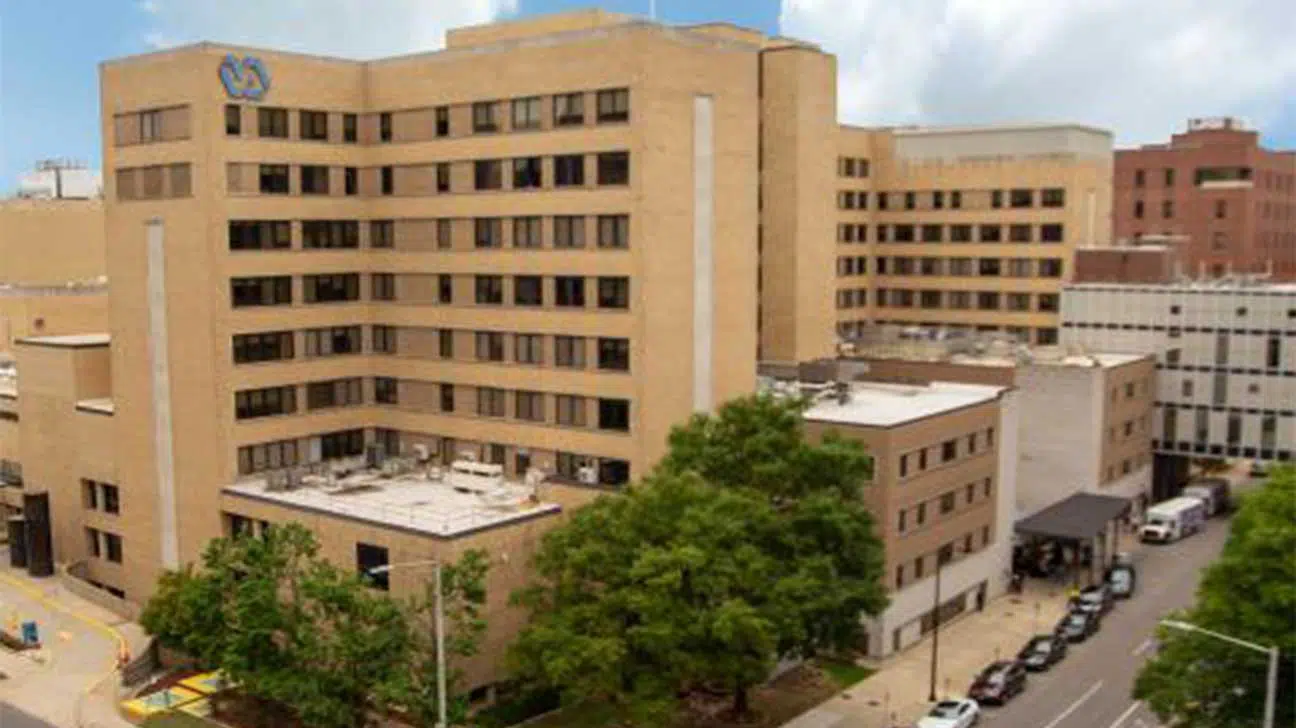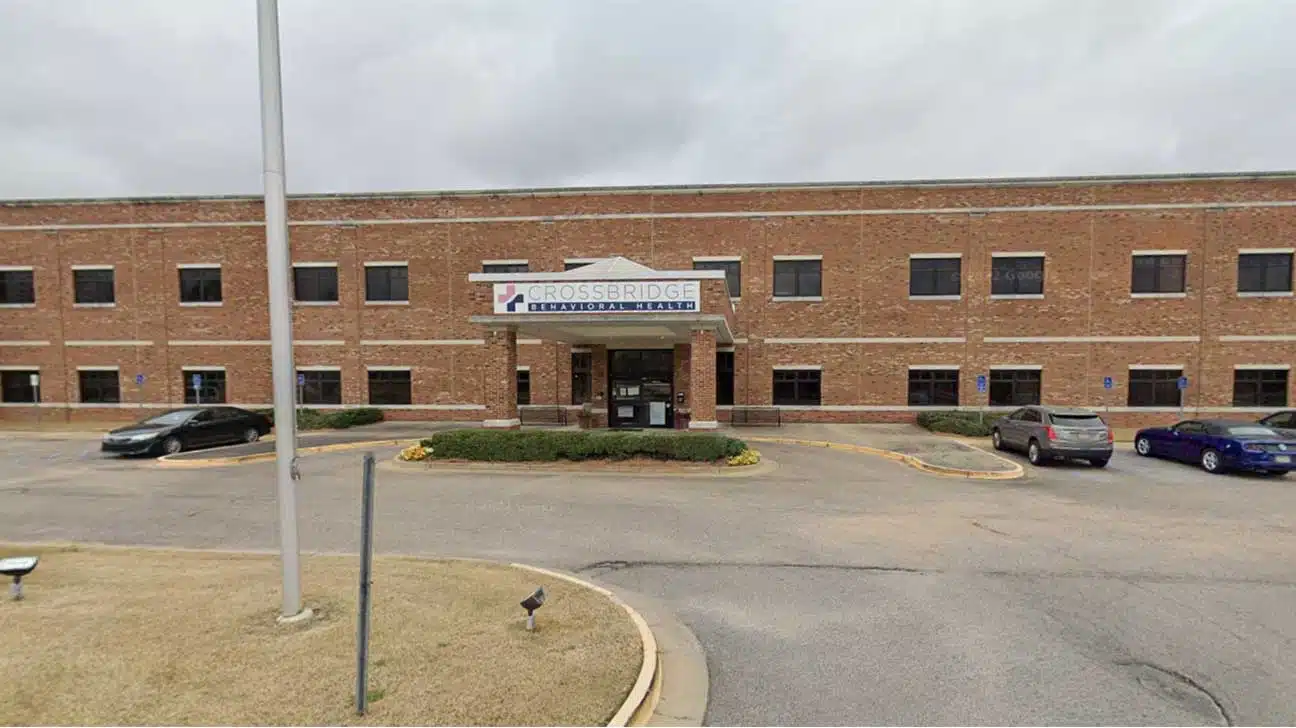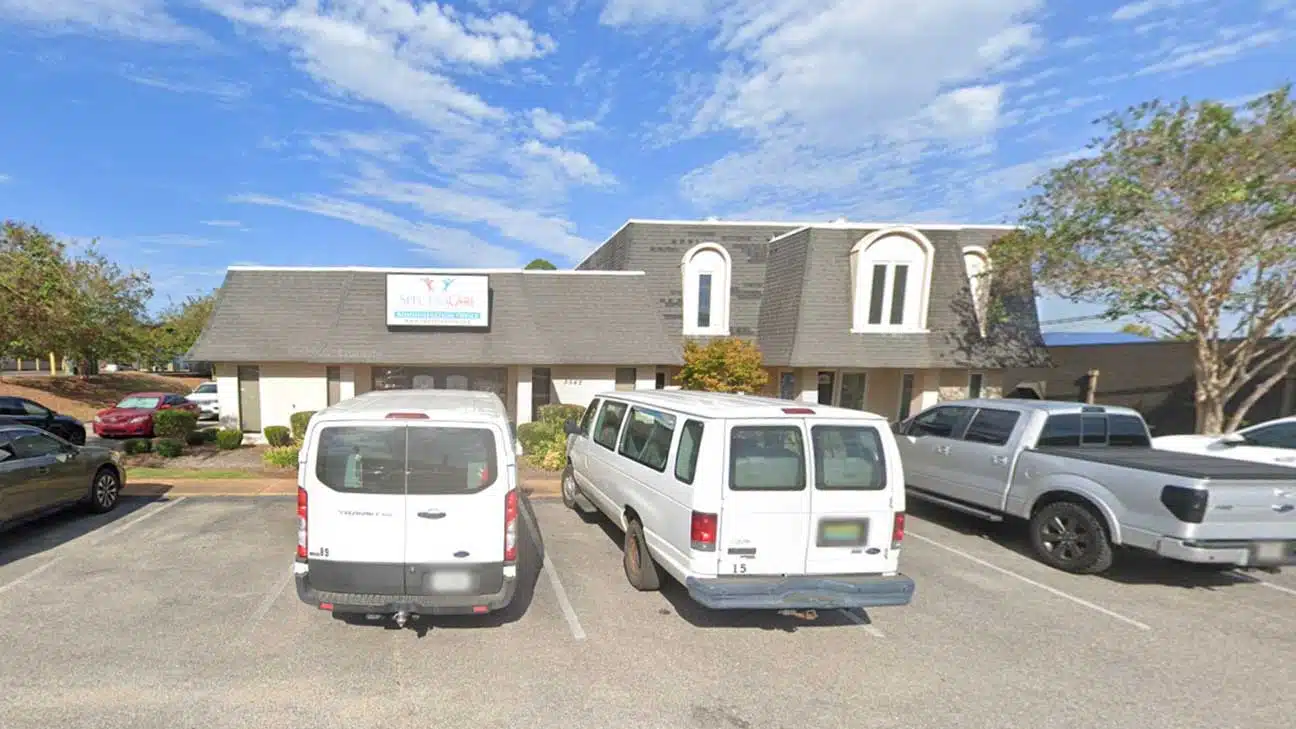
If you or someone you love are overcoming mental illness and substance abuse, you may benefit from a drug addiction treatment facility that provides co-occurring disorder treatment.
This is also known as dual diagnosis treatment, and there are a few rehab facilities in Alabama that provide substance abuse treatment and treatment for mental health issues.
List Of Dual Diagnosis Treatment Centers In Alabama
In the list below, we’ve highlighted dual diagnosis rehab centers in Alabama that have accreditation, certifications, high Google ratings, or other marks of quality.
1. BHG Huntsville Treatment Center, Huntsville, Alabama
This is an outpatient medication-assisted treatment (MAT) center that offers diagnosis and counseling for individuals with co-occurring opioid use disorder and mental illness.
Here, addiction counselors will provide cognitive behavioral therapy (CBT) in individual, group, and family counseling settings.
This outpatient treatment center in Huntsville, AL is supported by:
- positive client testimonies and a 3.8-star rating on Google
- dual accreditation through the Commission on
- Accreditation of Rehabilitation Facilities (CARF) and the Joint Commission
- LegitScript certification
Location and contact information:
4040 Independence Dr. N.W.
Huntsville, AL 35816
(256) 721-1940
2. Birmingham VA Medical Center, Birmingham, Alabama
The Birmingham VA Medical Center treats disorders like depression and PTSD along with drug and alcohol addiction treatment in Birmingham, AL.
Treatment services include:
- medication-assisted treatment for opioid use disorder using buprenorphine or methadone
- individual and group therapy
- cognitive behavioral therapy
- motivational interviewing
- treatment of anxiety, depression, and PTSD
- a treatment program for Alabama LGBTQ-identifying individuals
The Birmingham VA Medical Center has dual accreditation through CARF and the Joint Commission.
Location and contact information:
700 South 19th St.
Birmingham, AL 35233-1927
(205) 933-8101
3. Bradford Health Services, Warrior, Alabama
Bradford Health Services has several locations in Tennessee, Arkansas, and Alabama. Their treatment center near Homewood, AL offers co-occurring disorder services.
This is a long-term inpatient treatment center that can assist clients with addiction and co-occurring disorders, chronic relapse, chronic pain, unresolved grief, and trauma.
Bradford Health Services features:
- LegitScript certification
- accreditation through the Joint Commission
- National Association of Addiction Treatment Providers (NAATP) membership
Location and contact information:
1189 Allbritton Rd.
Warrior, AL 35180
(205) 647-1945
4. Crossbridge Behavioral Health, Montgomery, Alabama
Crossbridge Behavioral Health is affiliated with Baptist Health and provides dual diagnosis treatment for mental health and substance use disorders in Montgomery, AL.
Treatment services include:
- inpatient medical detox
- outpatient treatment
- hospital consultations
- medication-assisted treatment (MAT)
- treatment of co-occurring disorders
Crossbridge Behavioral Health is a non-profit organization that uses evidence-based treatments and accepts Medicaid, Medicare, and people who do not have insurance.
Location and contact information:
4385 Narrow Lane Rd.
Montgomery, AL 36116
(334) 286-5360
5. SpectraCare Health Systems, Midland City, Alabama
SpectraCare Health Systems has a number of treatment options and settings, including a residential treatment program for co-occurring disorders near Dothan, AL.
This is a co-ed treatment facility that gives exclusive attention to people who have a mental health disorder and a substance use disorder and need integrated treatment for both.
This facility gives priority admissions to people who use IV drugs, women who are pregnant, and people who have dependent children. It also offers other outpatient and residential treatment programs.
SpectraCare Health Systems is accredited by the Council on Accreditation (COA). It is certified by the Substance Abuse and Mental Health Services Administration (SAMHSA) for opioid treatment.
Location and contact information:
1672 Columbia Hwy.
Dothan, AL 36302
(800) 951-4357
Types Of Treatment For Co-Occurring Disorders At Rehab Centers In Alabama
Dual diagnosis refers to the occurrence of a substance use disorder and a mental health disorder at the same time. Any substance use disorder and any of a number of mental health disorders qualify as co-occurring when you have both at the same time.
Mental health disorders that often co-occur with addiction may include:
- anxiety disorders
- obsessive-compulsive disorder
- bipolar disorder
- depression
- schizophrenia
Having these two types of disorders at the same time means that you have to treat them at the same time.
Common treatments for co-occurring disorders include:
- medication for either disorder or both
- cognitive behavioral therapy
- therapeutic communities
- dialectical behavior therapy
- contingency management
How Common Is Dual Diagnosis In Alabama?
MedlinePlus estimates that, of people who experience a mental health disorder, about half experience a substance use disorder at some point in their life.
Alabama Public Health (APH) cites SAMHSA’s statistic that between 2017 and 2019, over 40% of adults in Alabama sought out mental health treatment.
APH goes on to note that one of the early signs of mental illness includes substance abuse
How To Choose A Dual Diagnosis Program In Alabama
When choosing a recovery center that addresses mental health services and alcohol and drug treatment it is important to keep a few things in mind.
Here are a few features to look for in a dual diagnosis treatment program:
- targeted co-occurring disorder services: Find drug abuse programs that specialize in dual diagnosis treatment through support groups, use behavioral therapy, and medication.
- inpatient or outpatient: There are both outpatient and inpatient drug rehab centers available in Alabama, so choose a rehab center that offers the level of care you require. This could include an intensive outpatient program, a partial hospitalization program, or long-term residential treatment.
- individualized treatment plans: Select a rehab program that offers services specific to your needs, such as group therapy, medications, or detoxification.
Alabama Dual Diagnosis Treatment FAQs
Find answers to some of your questions about dual diagnosis treatment centers in Alabama.
How Do I Pay For Dual Diagnosis Treatment In Alabama?
Most co-occurring disorder treatment plans can be covered by major health insurance companies and other payment options, such as self-pay.
Some drug and alcohol rehab centers also accept Medicare and Alabama Medicaid for substance abuse treatment.
Do Dual Diagnosis Treatment Centers Treat All Co-Occurring Mental Health Conditions?
Dual diagnosis treatment usually covers a wide range of mental health disorders. These may include anxiety disorders, mood disorders, and many others.
However, you should verify with the facility before you begin your program whether they can offer treatment services for the mental health disorder you have.
What Do I Do After A Dual Diagnosis Rehab Program In Alabama?
After treatment, many clients continue their recovery by moving into sober living or enrolling in aftercare.
Find Dual Diagnosis Treatment Today
You can get help for mental health issues and drug and alcohol addiction today.
For more information on what to expect from dual diagnosis treatment, call AddictionResource.net.
Updated on March 30, 2023
Addiction Resource aims to provide only the most current, accurate information in regards to addiction and addiction treatment, which means we only reference the most credible sources available.
These include peer-reviewed journals, government entities and academic institutions, and leaders in addiction healthcare and advocacy. Learn more about how we safeguard our content by viewing our editorial policy.
- Alabama Public Health
https://www.alabamapublichealth.gov/healthrankings/mental-health-and-substance-abuse.html - National Institute of Mental Health
https://www.nimh.nih.gov/health/topics/substance-use-and-mental-health - National Library of Medicine: MedlinePlus
https://medlineplus.gov/dualdiagnosis.html#:~:text=Someone%20with%20a%20dual%20diagnosis,you%20emotional%20and%20social%20support. - Substance Abuse and Mental Health Services Administration
https://www.samhsa.gov/medication-assisted-treatment/medications-counseling-related-conditions/co-occurring-disorders




